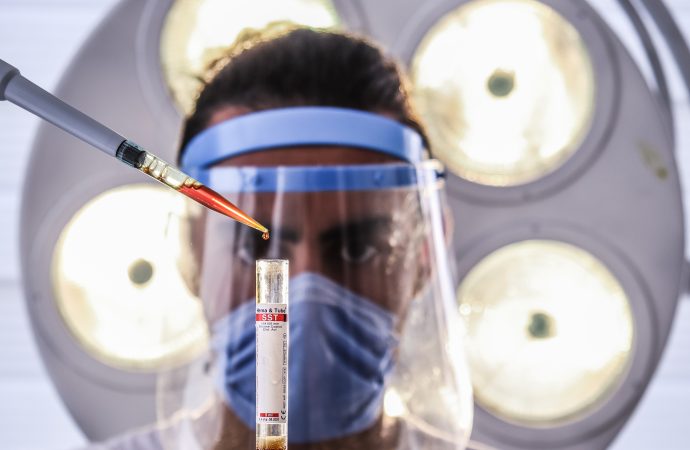Rapid cancer blood tests have emerged as a potential game-changer in cancer diagnosis, promising faster and less invasive methods for detecting the disease. These quick diagnostic tools offer hope for earlier detection, personalized treatment approaches, and improved patient outcomes. However, as with any medical advancement, there are both benefits and concerns to consider. In this
Rapid cancer blood tests have emerged as a potential game-changer in cancer diagnosis, promising faster and less invasive methods for detecting the disease. These quick diagnostic tools offer hope for earlier detection, personalized treatment approaches, and improved patient outcomes. However, as with any medical advancement, there are both benefits and concerns to consider. In this article, we delve into the advantages and challenges surrounding quick cancer blood tests, exploring whether they are truly a blessing or a curse for patients.
One of the significant advantages of quick cancer blood tests lies in their potential to detect cancer at an early stage. By analyzing specific biomarkers or genetic alterations in a blood sample, these tests can identify the presence of cancer cells or provide valuable insights into an individual’s risk of developing cancer. Early detection plays a crucial role in improving survival rates and enabling timely intervention and tailored treatment strategies.
Moreover, quick cancer blood tests offer the promise of monitoring treatment response and disease progression. By analyzing circulating tumor DNA or other cancer-related markers, these tests can provide real-time information about a patient’s response to therapy. This allows healthcare providers to make informed decisions regarding treatment adjustments, leading to more precise and effective care.
The non-invasiveness and convenience of quick cancer blood tests are another significant advantage. Traditional cancer diagnostic methods often involve invasive procedures, such as tissue biopsies, which can be uncomfortable, time-consuming, and costly. Quick cancer blood tests offer a less invasive alternative, minimizing patient discomfort and reducing the overall burden of testing.
However, there are legitimate concerns regarding the reliability and accuracy of these tests. Ensuring that quick cancer blood tests consistently deliver accurate results is of paramount importance. Robust clinical validation studies are necessary to establish the sensitivity, specificity, and overall performance of these tests across diverse patient populations.
False-positive or false-negative results can have serious implications, leading to unnecessary invasive procedures or delayed diagnoses. Patient safety and well-being should always be the top priority when considering the integration of any diagnostic tool into clinical practice. Ethical considerations must also be taken into account to ensure responsible and equitable use of quick cancer blood tests.
Regulatory oversight and clear guidelines play a vital role in addressing these concerns. Collaborations among researchers, clinicians, and regulatory agencies are necessary to establish standardized protocols, quality control measures, and stringent guidelines for the use of quick cancer blood tests. These efforts will help ensure the reliability, accuracy, and ethical use of these diagnostic tools.
Another challenge is the accessibility and affordability of quick cancer blood tests. While they hold great promise, it is essential to make these tests accessible to all patients, regardless of their socioeconomic status. Efforts should be made to address issues of cost, insurance coverage, and availability, ensuring that the benefits of these tests reach those who need them the most.
In conclusion, quick cancer blood tests offer the potential for faster, less invasive cancer detection and monitoring. The ability to detect cancer at an early stage and tailor treatment approaches is undoubtedly a blessing for patients. However, concerns regarding reliability, accuracy, ethical considerations, and accessibility must be carefully addressed to prevent any potential negative consequences.
As researchers, clinicians, and regulatory bodies work together to tackle these challenges, the hope is that quick cancer blood tests will prove to be a true blessing for patients. With continued advancements, validation studies, and a focus on patient-centered care, these diagnostic tools can become an integral part of the cancer care landscape, improving outcomes and providing hope for millions affected by this devastating disease.

















Leave a Comment
Your email address will not be published. Required fields are marked with *